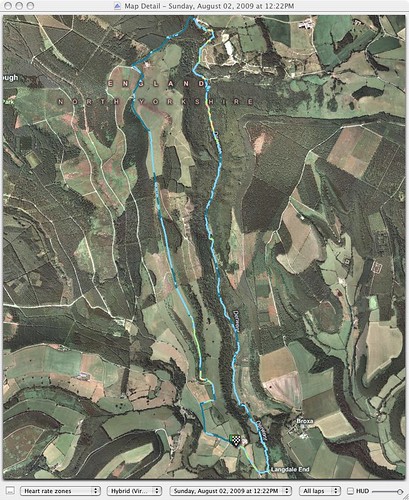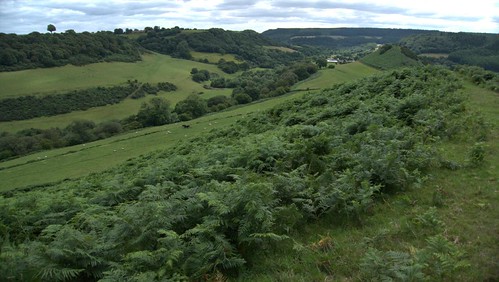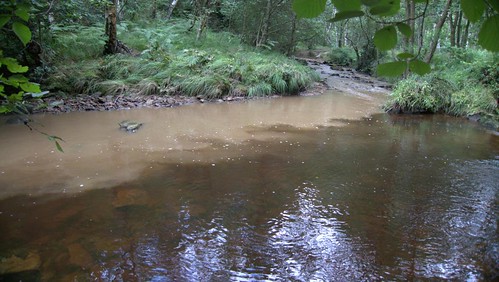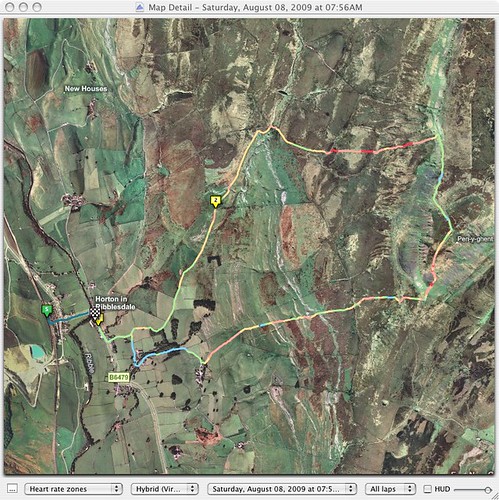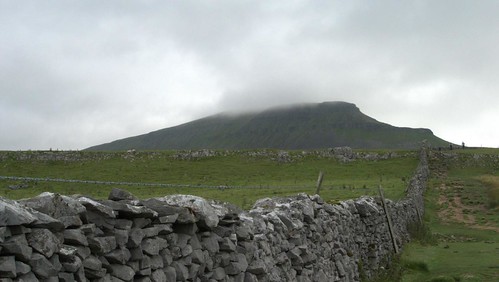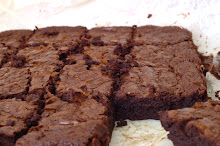Ok, this is how the process goes:
- Mix some gloppy stuff with a silver halide to make it photosensitive.
- spread a thin, thin layer of gloppy stuff onto some mesh that's glued into a frame.
- let everything dry.
- print off your image onto transparency. (I used the T&C logo, and because there was space for two I did a Seal of Rassilon, just for geek points.)
- Put the image onto the photosensitive mesh, and turn a light on. Leave to expose for 15 minutes.
So at this point the wheels sort of fell off the day. We had one exposure unit so were doing screens one at a time, and the first person to expose his screen went into the vestry after the 15 minutes to discover the bulb had blown. We had no way of knowing when the bulb had blown, but one thing was for sure: we had no spare. So while Peter (his name was Peter) was washing his screen (the next step; scrub the screen, and the emulsion that was exposed remains on the screen, and the blacked out stuff washes out) I was deemed the most capable person in the group, so went with the organiser to find a new bulb.
The organiser was from Wakey, a nice lady called Helen, who didn't know the Leeds one-way system so I was giving directions to Maplin - which was hilarious, and involved me shouting "no! not that way!" as we were driving into incoming traffic a bit. Maplin didn't have the 1KW bulbs we needed, so we went to B&Q, which was quite a bit further away. Alas! No bulbs there either. Then I had a brainwave; Ring, the factory lighting shop, carries all sorts of whizzy kit that you never find anywhere else, so I directed Helen there, and joy! They had a bulb (we bought two) and even fitted it for us. Back to Trinity, having been out doing this for 45 minutes.
We got the exposure unit back to normal, put my screen on and exposed my images. Peter's, unfortunately, hadn't worked properly because they'd not exposed for long enough. But, mine did work. Here's my screen:

And everybody elses worked too, more or less.
So, when your screen has been washed and dried, you have lunch. Lunch was lovely, provided by Helen and eaten on trestle tables in front of the altar. The only space big enough to set out the tables we needed was up on the dais, and so we were sat there, munching tasty pie, looking at the stained glass and plasterwork. It was a somewhat surreal moment; thanks to my Catholicism I have a "churches should be quiet, contemplative places" thing, and this was anything but.
Once lunch was over we tidied up, and started printing. First, tape up any clear bits on the screen that you don't want ink to go through. Next, mix your colours. We were using System 3 inks, which are basically acrylic paints mixed with more gloopy stuff labelled "screen printing medium".

Mix the colour you want in a paper cup, then guestimate how much ink is in there and add the same quantity of medium, so if you're mixing a purple and have four squidges of crimson and one of cobalt blue, add five squidges of medium. This stuff dries quite quickly once it's spread thin, but in the cup it'll last for a while. Put whatever you're printing on underneat the screen, put some ink onto the bottom of the image, and using a squeegee spread the ink over the image. Then force the squeegee back over the image to scrape as much ink as you can off, then shift the screen out of the way as quick as you can, to stop the ink bleeding through your nice crisp edges. Voila! done.
We had some quite complex images from other people; one chap printed line drawings of a 1980s supercar, and a quite complex lion image. Another chap had a high-contrast monotone selfportrait, there were some self-penned works, and someone had a book of ancient greek designs that other people took images from (an owl was quite popular). We practised on some paper first.

Then we moved onto T-shirts if we had them. I only brough three t-shirts with me, so ran out quite quickly. Thankfully there was plenty of time so I ran out to get more, which I also ran through in no time at all. The problem then was drying them sufficiently to be able to take them home. We ended up using the pews as clothes horses.

The screens obviously had to be washed between different colours being applied, but also had to be washed if left for a couple of minutes without having ink applied, as ink would dry on the screen and cause splotches on the material. I was very impressed at the resilience of the screen; it stood up to quite a bit of scrubbing as we tried to get ink out that had set hard. There were buckets of water for washing stuff up in, and it was a good job there was tarpaulin on the floor!
Eventually, we were done. A quick tidy up, wrapping the still damp shirts in paper, and putting the tables away, it was like we'd never been there. Because I mentioned pinholes and matchboxes during the day, as well as Photocamp and Exposure Leeds (which is where I originally heard of the workshop) I've been invited to run a similar session sometime after September, and I'm looking forwards to that already.
I have to say; the organisation was perfectly fine, we had plenty of time and didn't feel rushed, and Louise, the tutor, did a fine job and was endlessly patient with us all. As part of an arts project called Trans=Send the unused prints were going to be used as envelopes and sent to a similar church in Sunderland; a great use of resources, I feel.
Results? Oh, I'm happy. I've learned a new technique, I have another thing I want to stuff into a studio (I might just bite the bullet and ask for space at Temple Mill), I met some fun people and I came away with whizzy t-shirts.
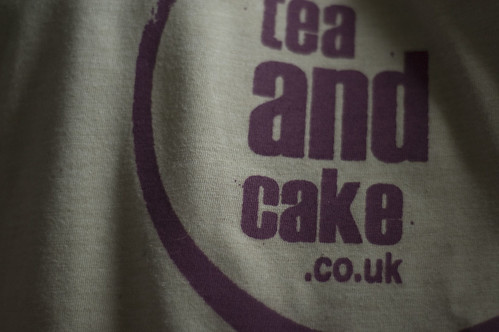
Result.

